Re-thinking Child’s Playground
Healthy Futures, Healthy Minds


Context & Location.

Existing Site Dynamics.

Avenues for Design Research & Possible Outcomes.
> Robert Owen Nursery School and Children’s Centre has a garden space, which required redesigning to meet the needs of children between the ages of 0-4 years as well as the needs of its staff and local families. The garden is deemed to be one of the most important parts of the children’s experiences where they can grow physically, intellectually and emotionally, and have real contact with the elements, seasons and the natural world — place for multi-dimensional and multi-sensory activities that surprise and excite.
> To address this need, this research project explores the child’s playground through re-purposing the role of landscape in the 21st century nursery school and re-imagines an outdoor space where children can continue to learn by doing; a place for children to interact, make friends, imagine, invent, create, construct, de-construct, investigate, explore, discover, find patterns, make marks, use different media and materials, run, climb, pedal, jump, throw, dig, grow, cultivate, hide and collaborate.
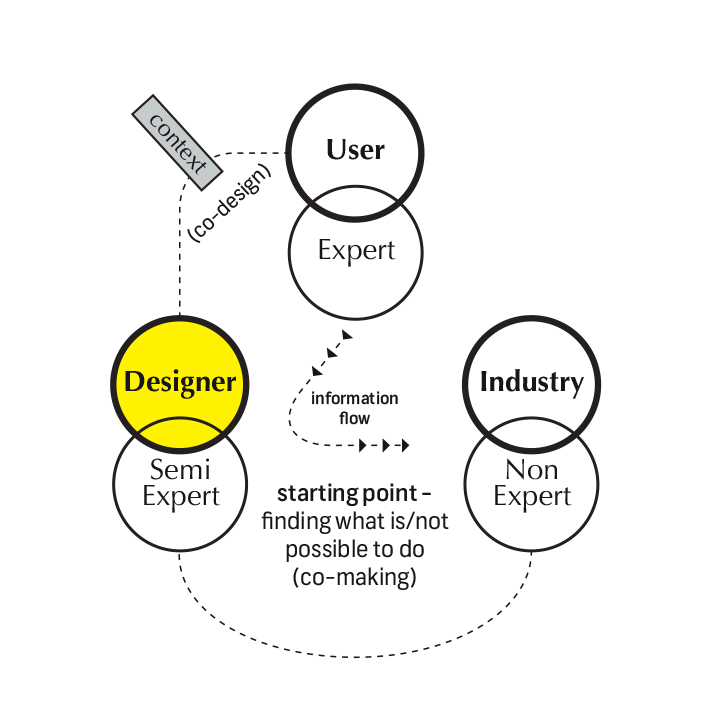 This research project is based on the Iterative & Inexpensive model to help with failing cheap and fast in the design process through rapid prototyping in response to user needs and accommodate changes in circumstances or context.
This research project is based on the Iterative & Inexpensive model to help with failing cheap and fast in the design process through rapid prototyping in response to user needs and accommodate changes in circumstances or context. Shared views of the designer and the end-users helped with filling the unknown immediate demand, and with accommodating change in circumstances or context. The proposals were developed with user feedback and they stand as work-in-progress.
> Using the Iterative & Inexpensive model, three proposals originated from this research: Ecotopia (Abdul Kayum, Jahidul Miah, Ceyda Tezbasar and Marina Rossello-Knabe); Plenty Progress (Mini Coker and Priscilla Mensah); Magic (Billie Miller, Finlay Johnson, Leah Ward, Jed Maiden and Anika Hussain).
Key words: Landscape design;
Children’s playground;
Active learning
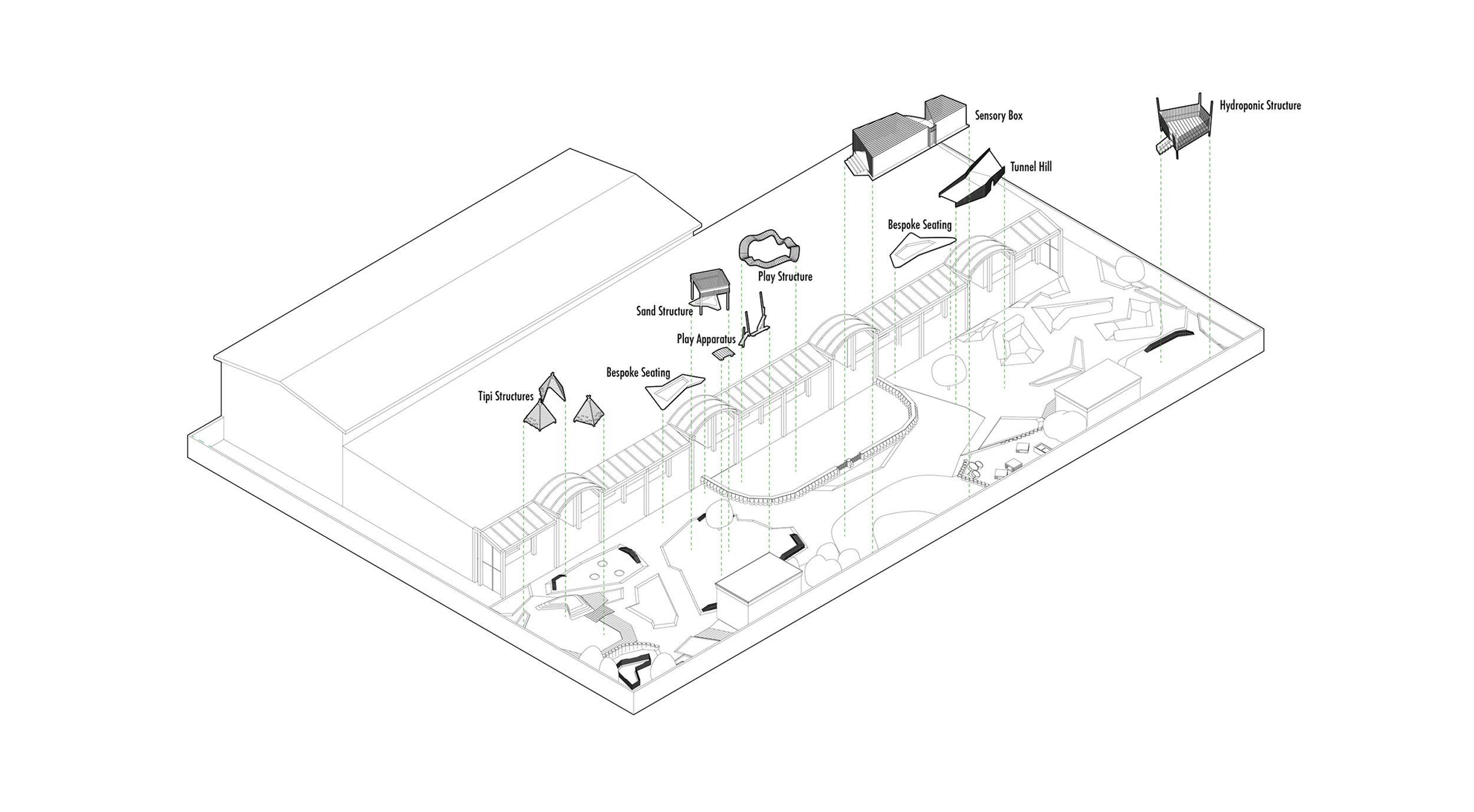
Proposal 1: Ecotopia.
> Ecotopia proposes a landscape that encourages a child’s development through the natural environment. The project sets out to challenge all children to make decisions and take risks through different levels of investigative and sensory interventions. Different areas within the playground offer the children endless possibilities where they are able to construct, deconstruct, and reimagine their play spaces using natural materials while providing landscapes where children can play, socialise, and connect with the environment.
Outdoor play is an important factor in child development, while encouraging a healthy childhood. The scheme encourages the children to connect with nature through different challenges, integrated across the space, boosting confidence and development in a stimulating environment.

Proposal 1: Ecotopia (plan).
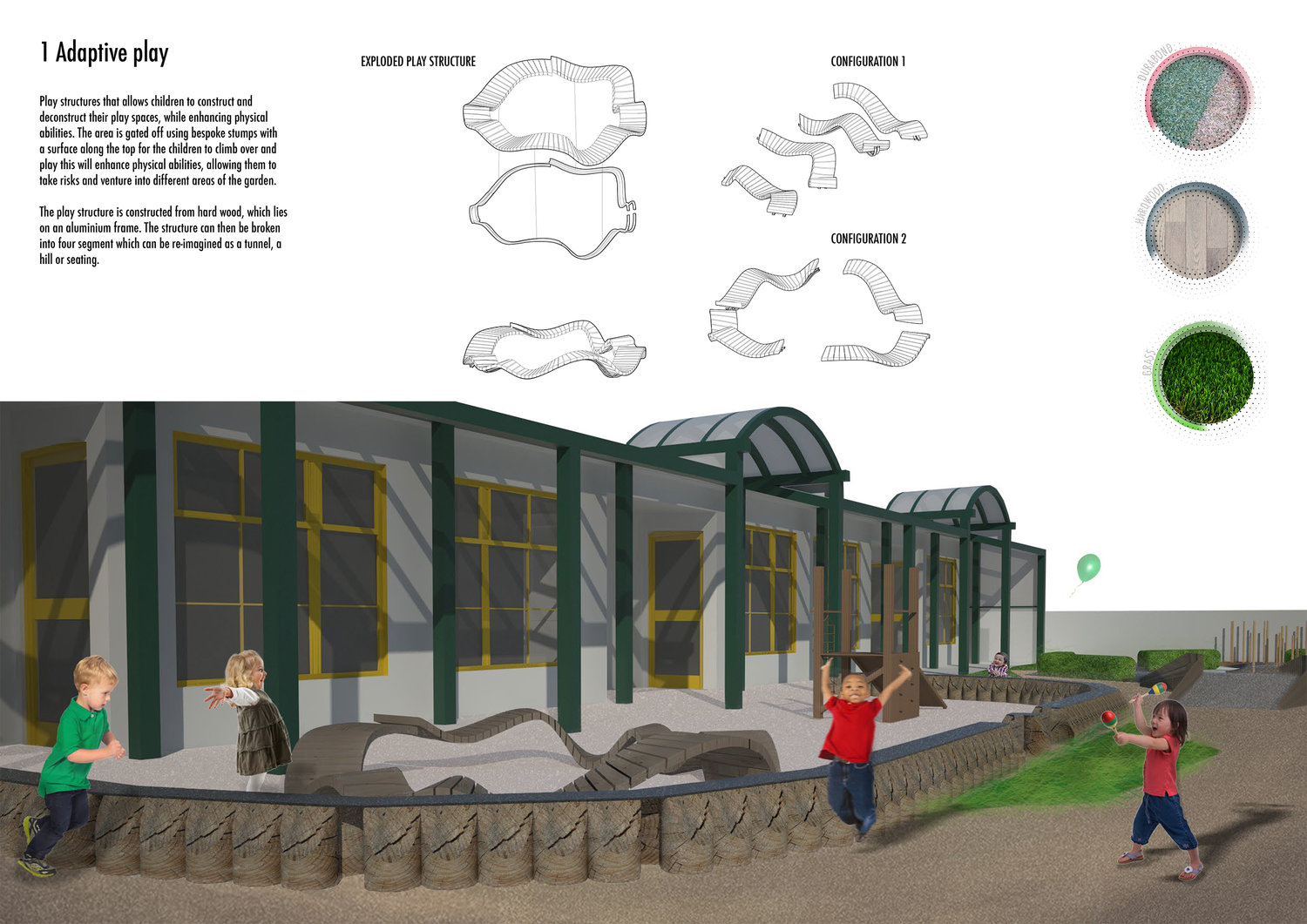
Proposal 1: Ecotopia.
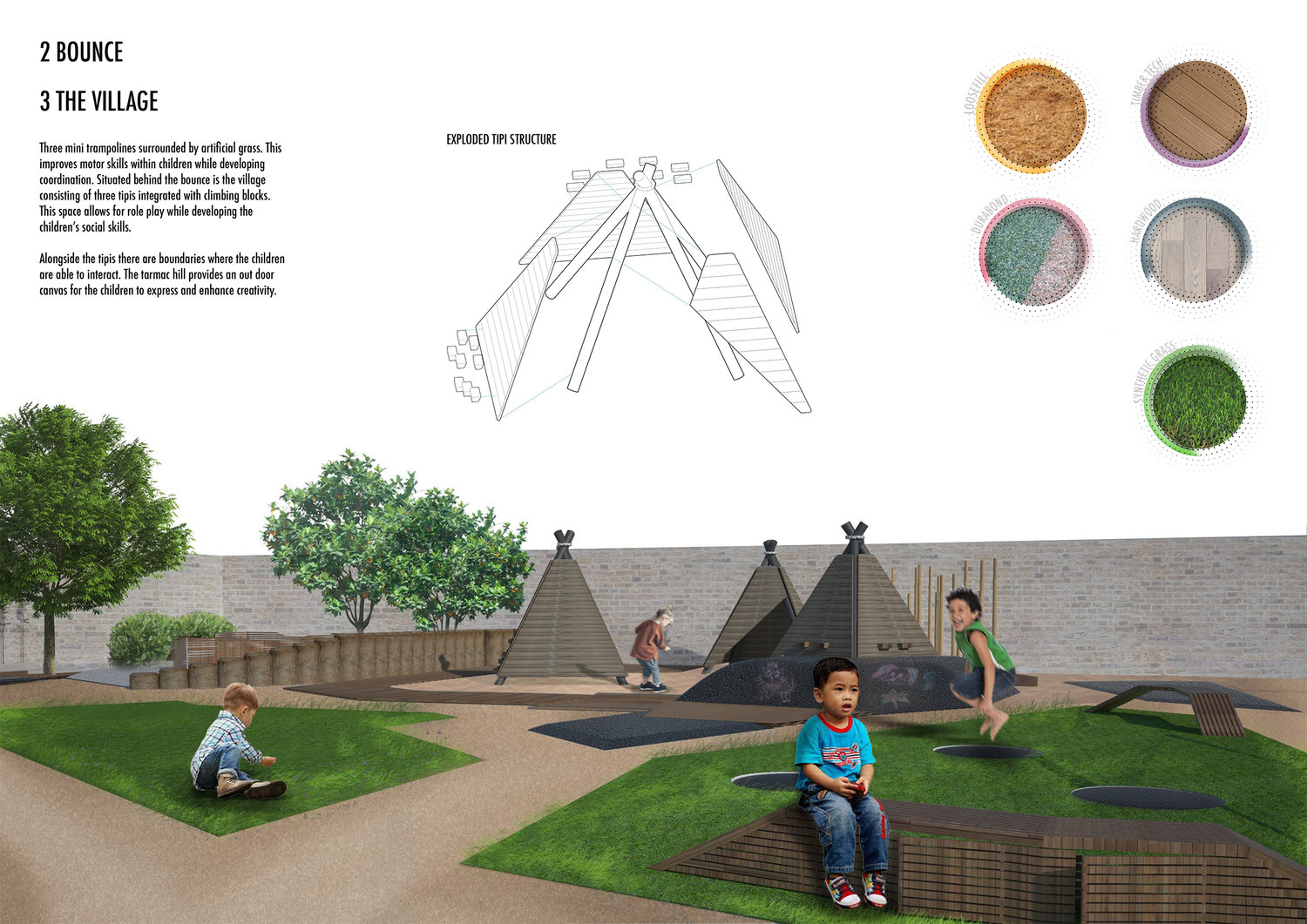
Proposal 1: Ecotopia.
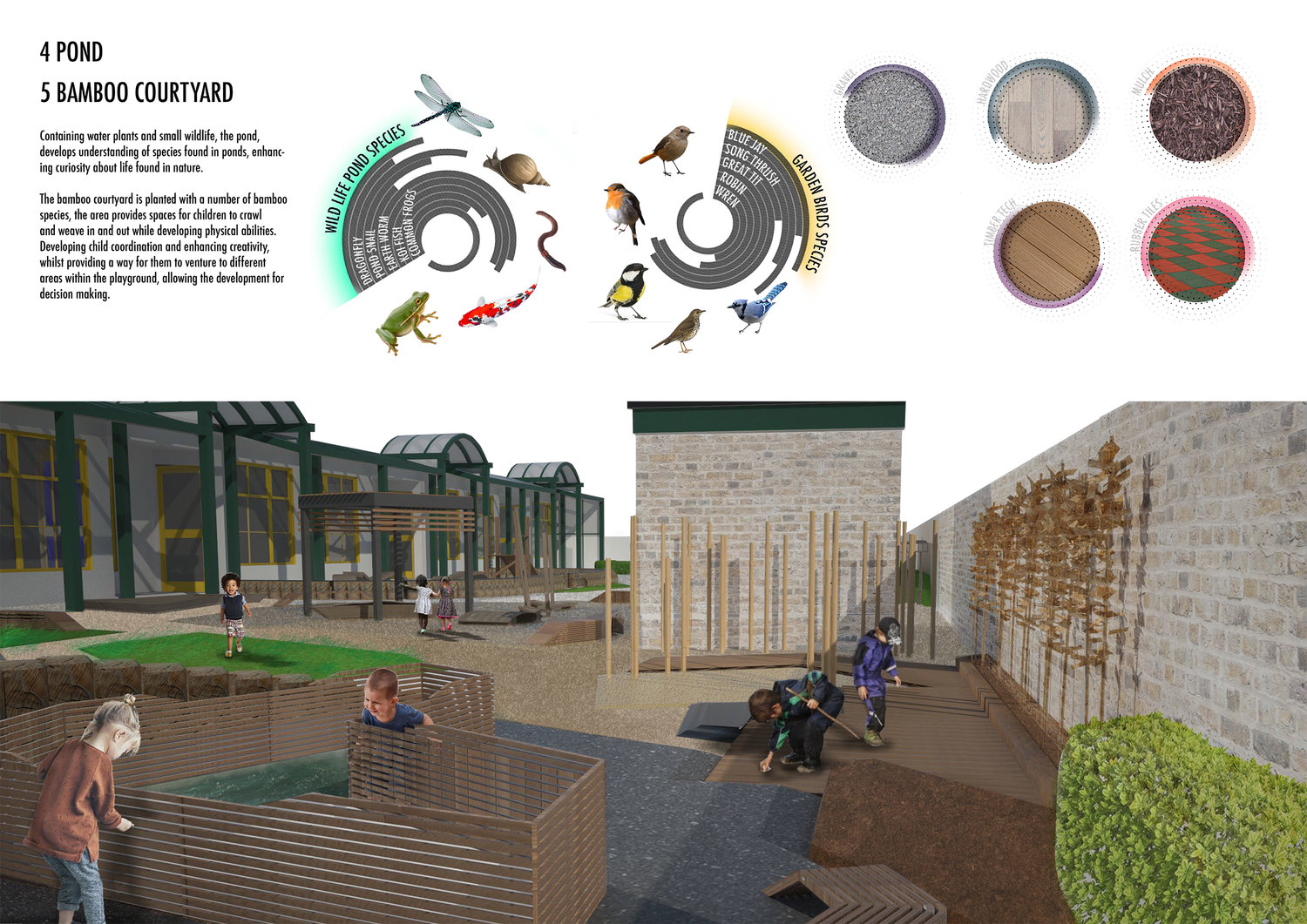
Proposal 1: Ecotopia (courtyard).
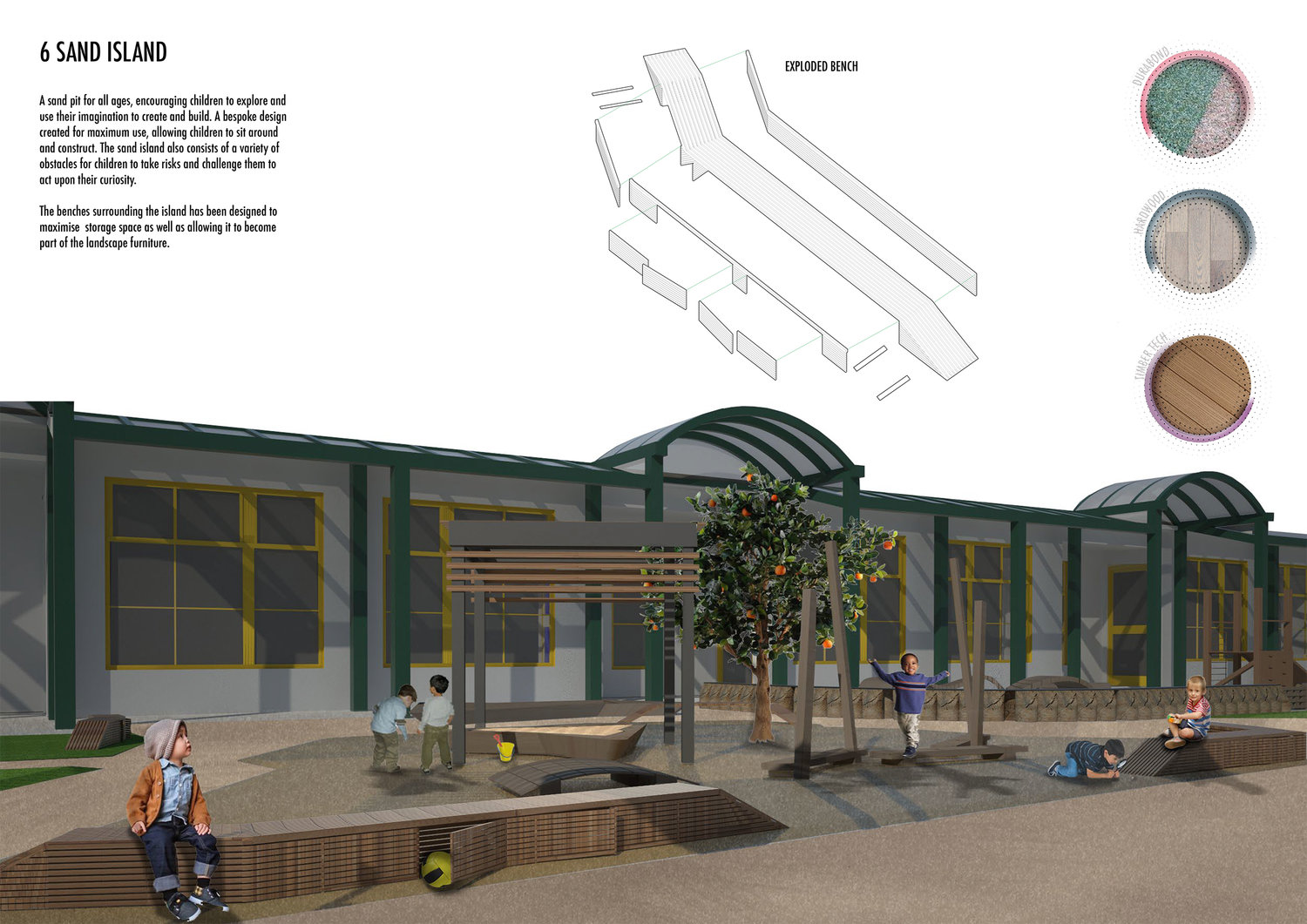
Proposal 1: Ecotopia (island).
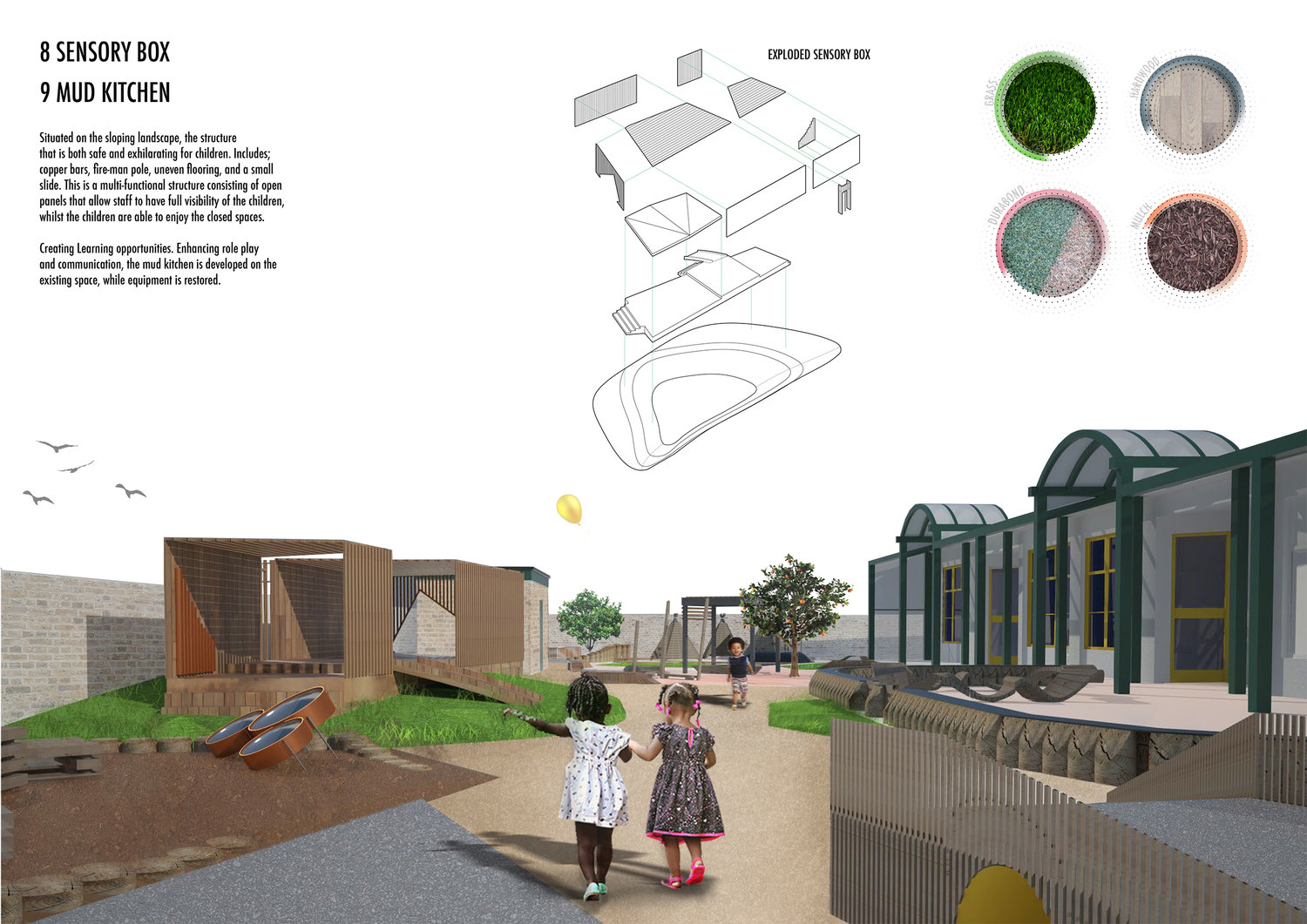
Proposal 1: Ecotopia (sensory kitchen).
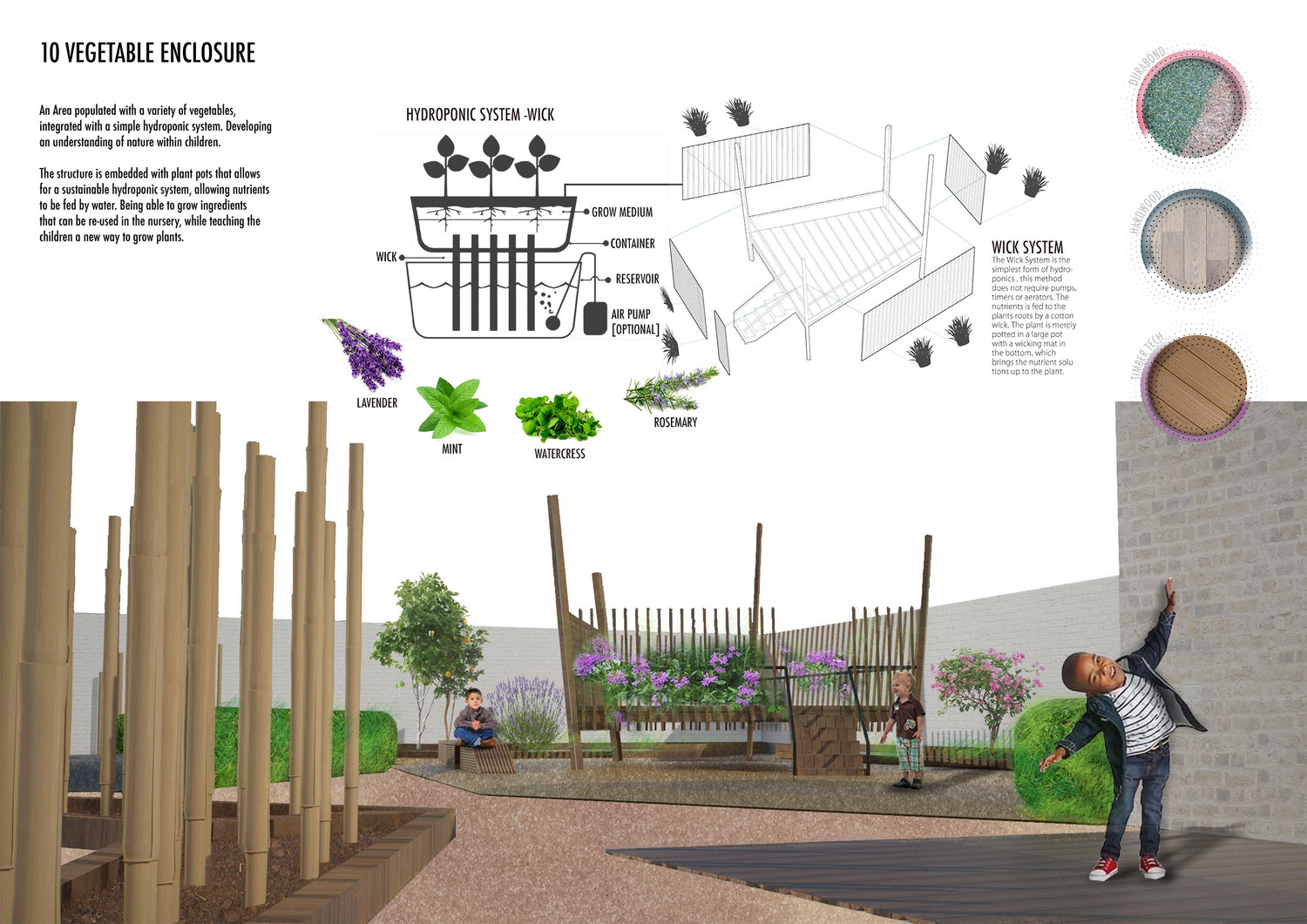
Proposal 1: Ecotopia (sensory garden).
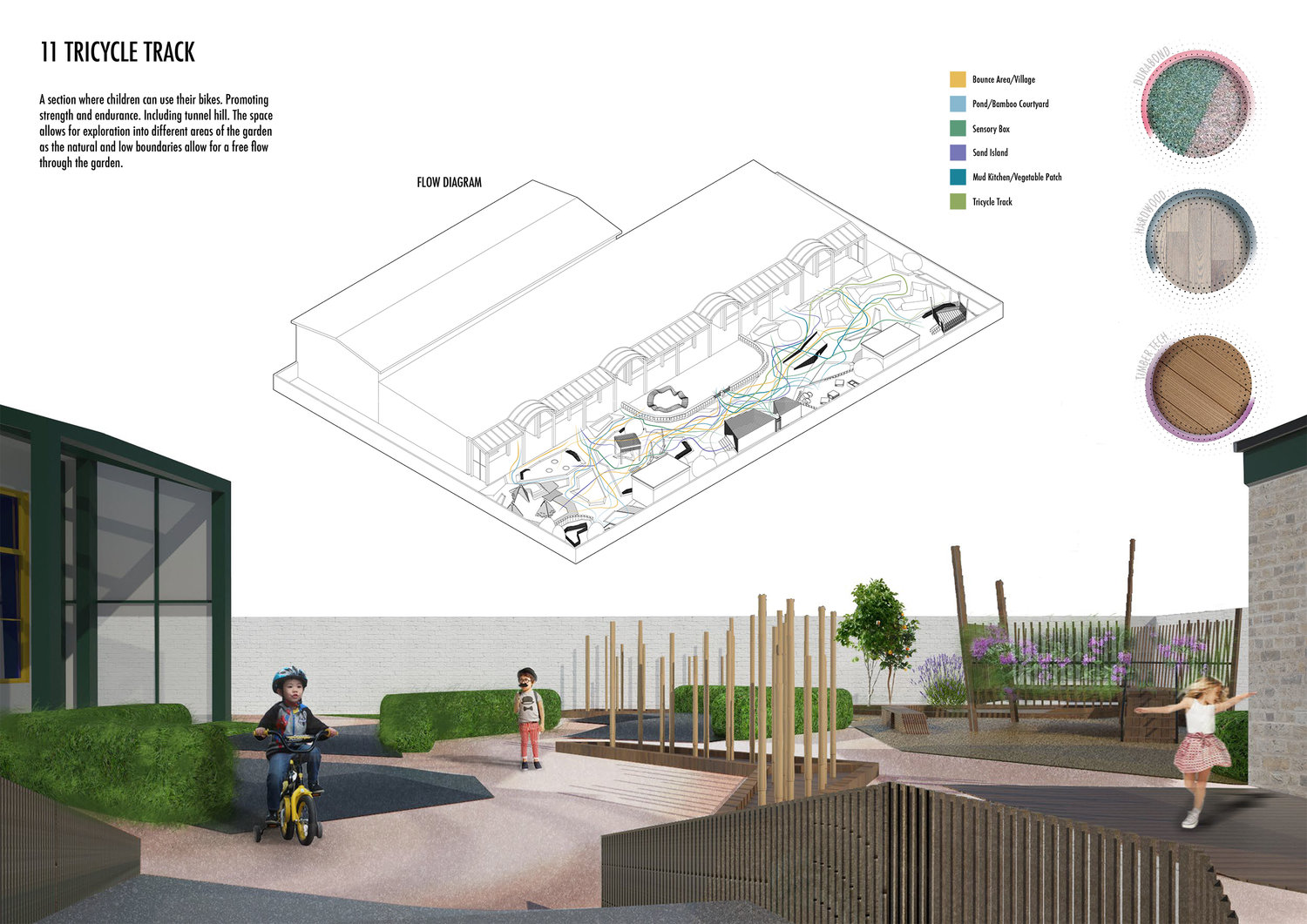
Proposal 1: Ecotopia (track).
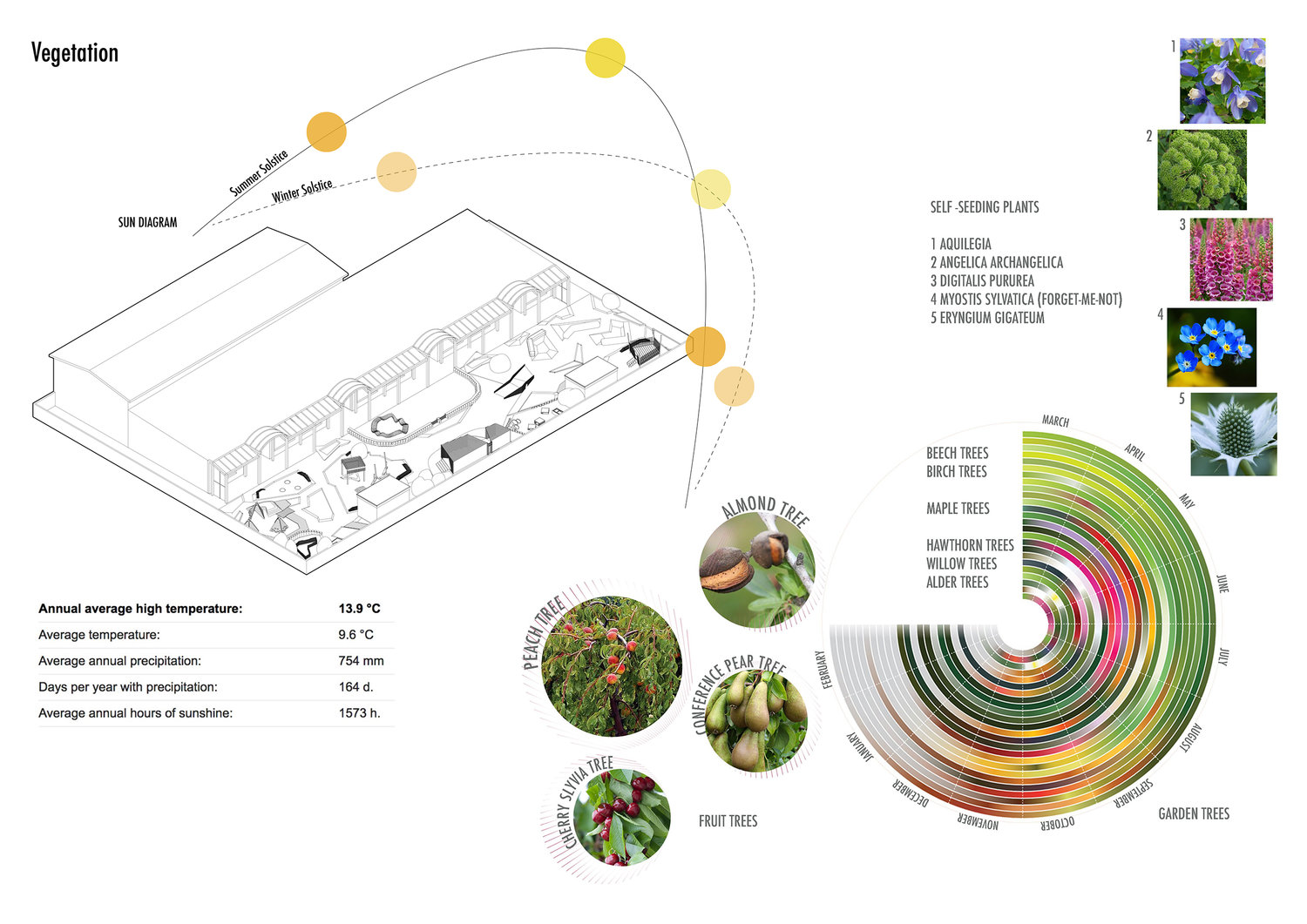
Proposal 1: Ecotopia (landscape).
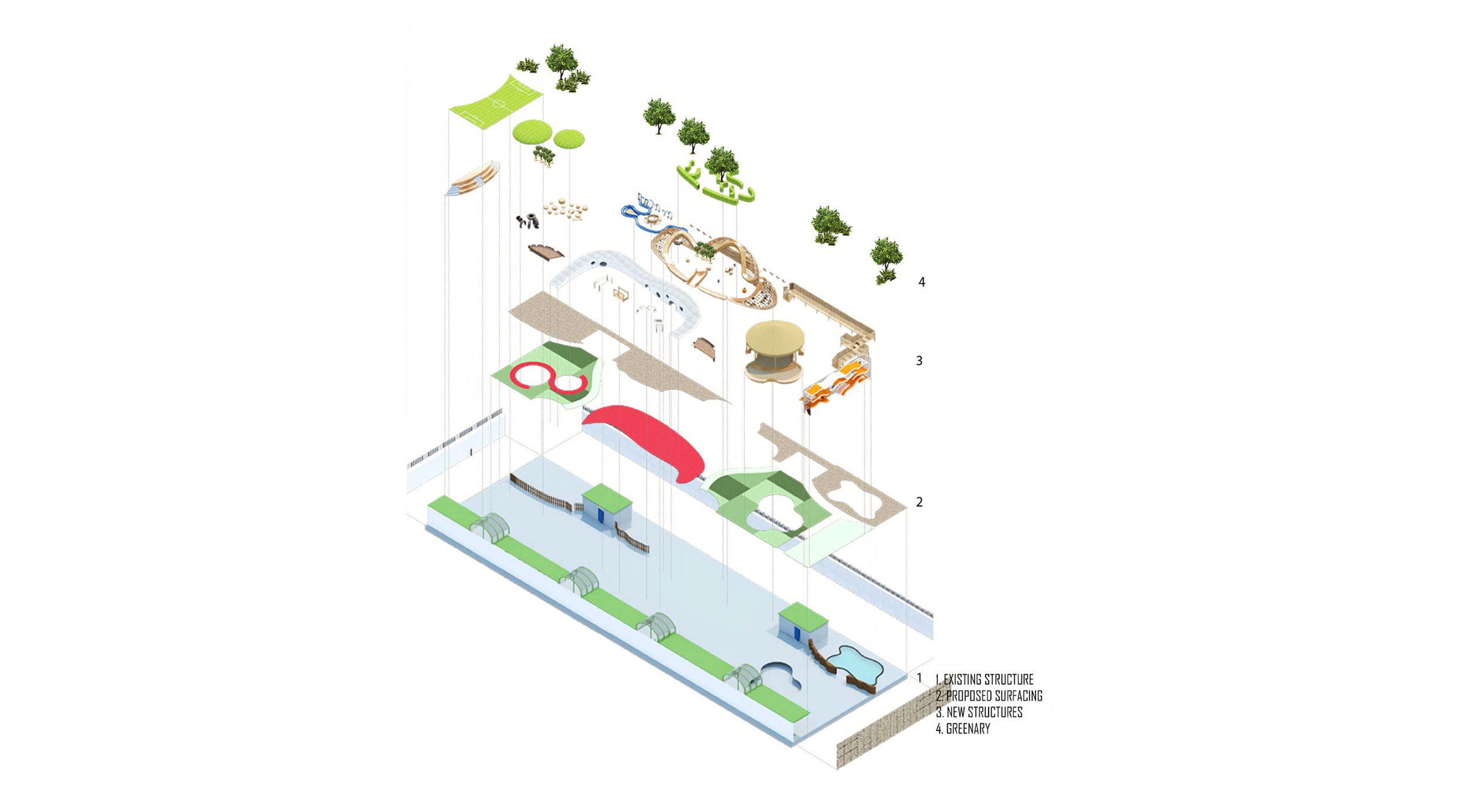
Proposal 2: Plenty Progress.
> Plenty Progress proposes a landscape that makes the child feel in control of her/his own kingdom where they can get to explore space for themselves and learn subconsciously through playing (action, reaction and communication).
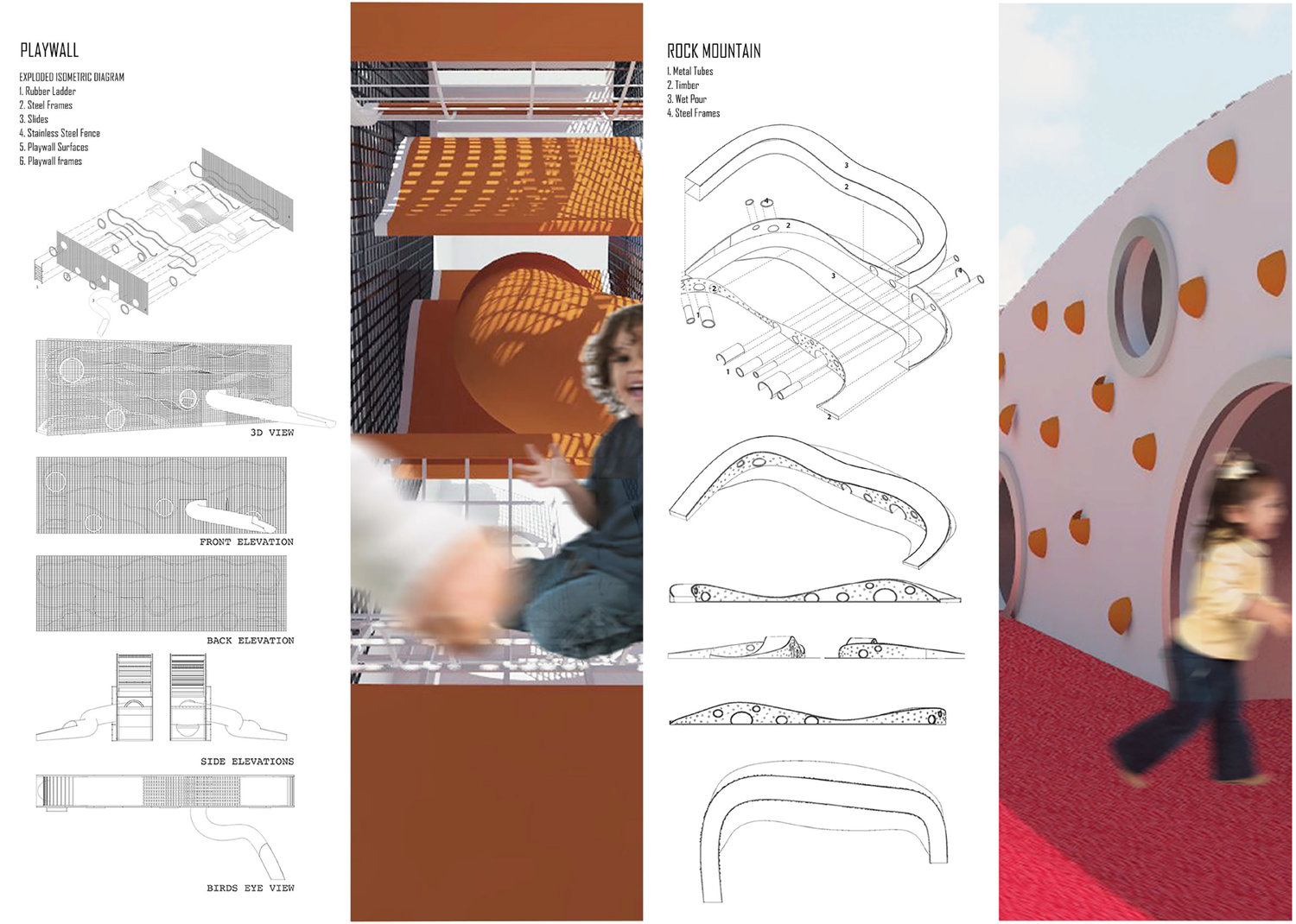
Proposal 2: Plenty Progress (components).
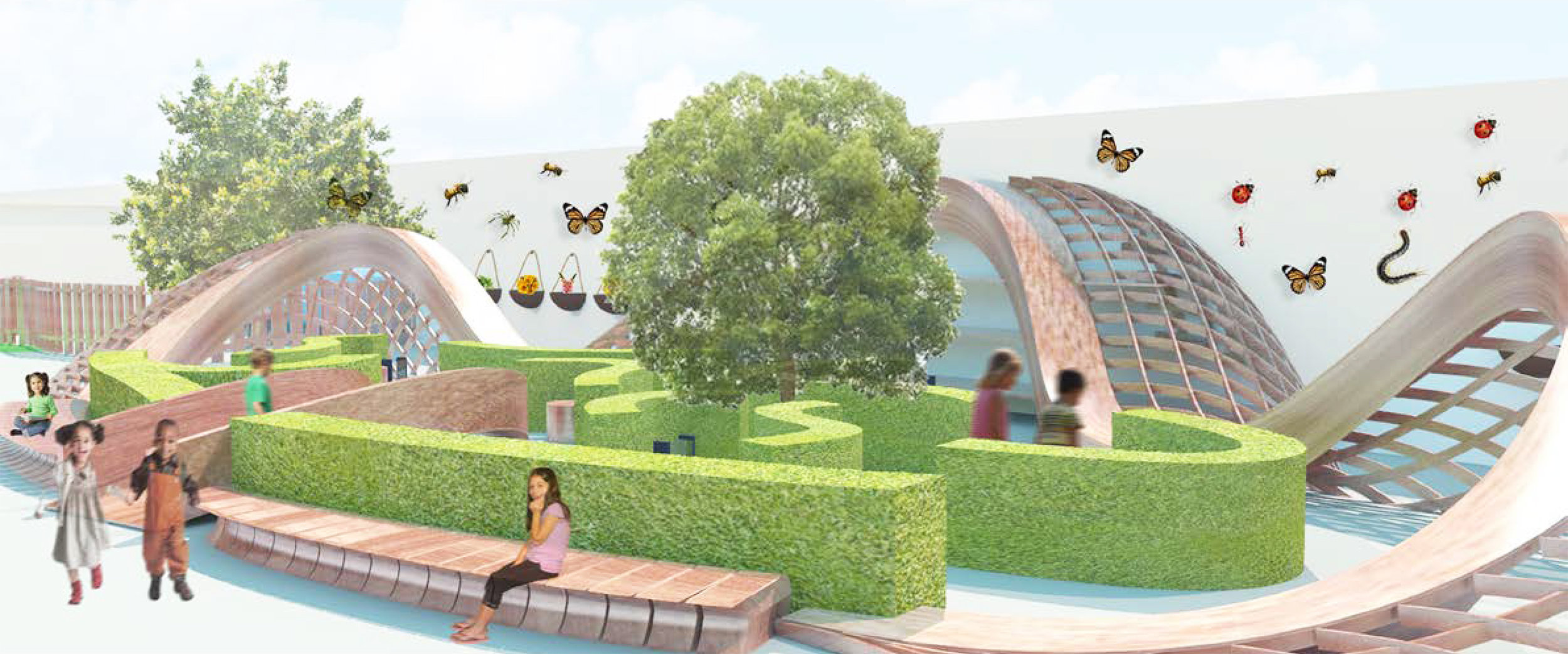
Proposal 2: Plenty Progress (courtyard).
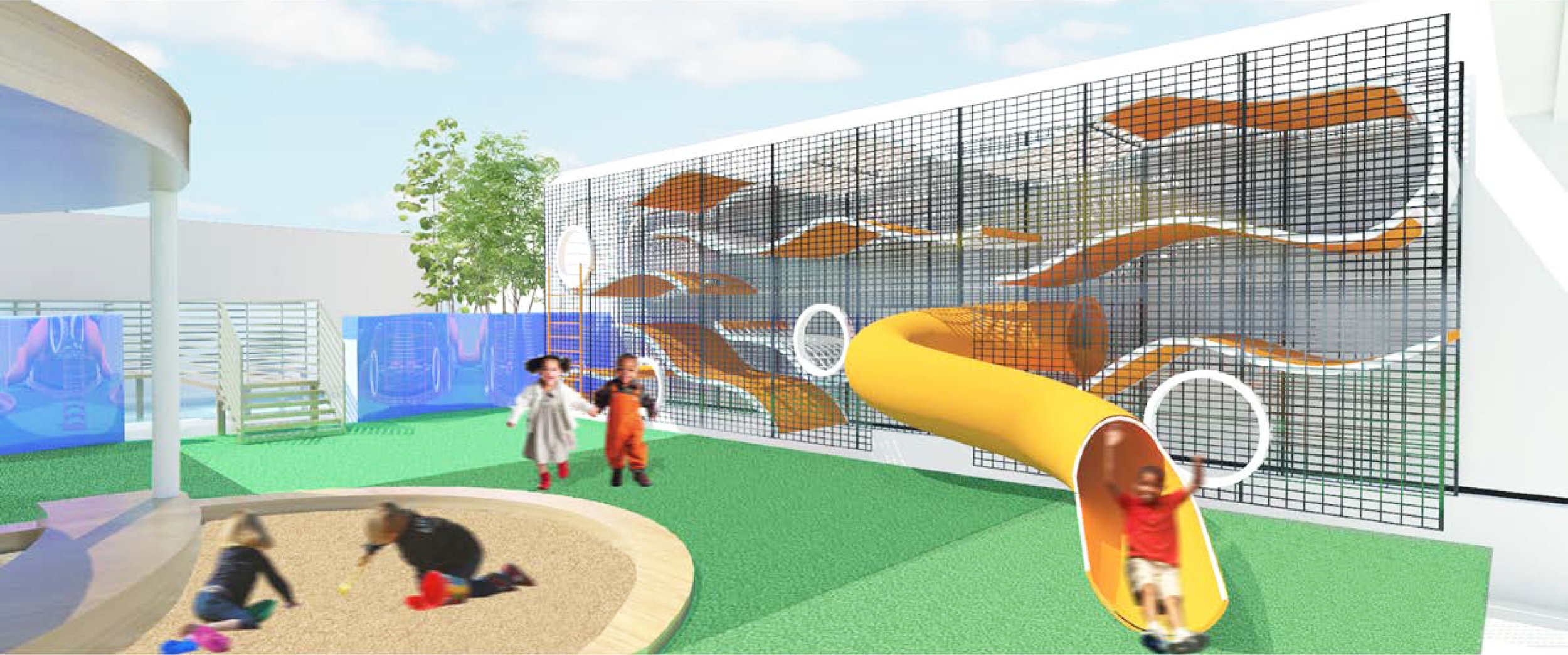
Proposal 2: Plenty Progress (wall).
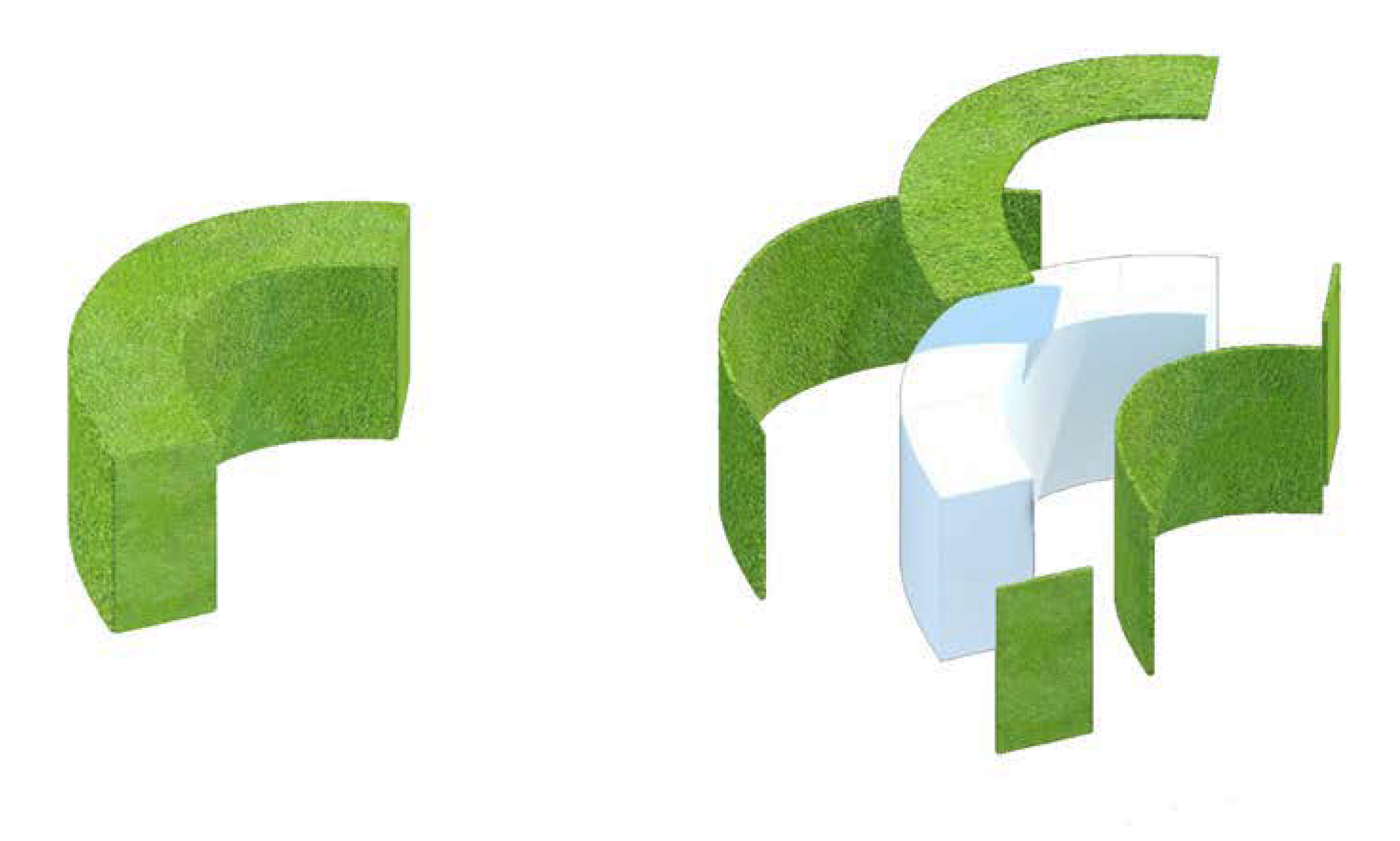
Proposal 2: Plenty Progress (modularity).
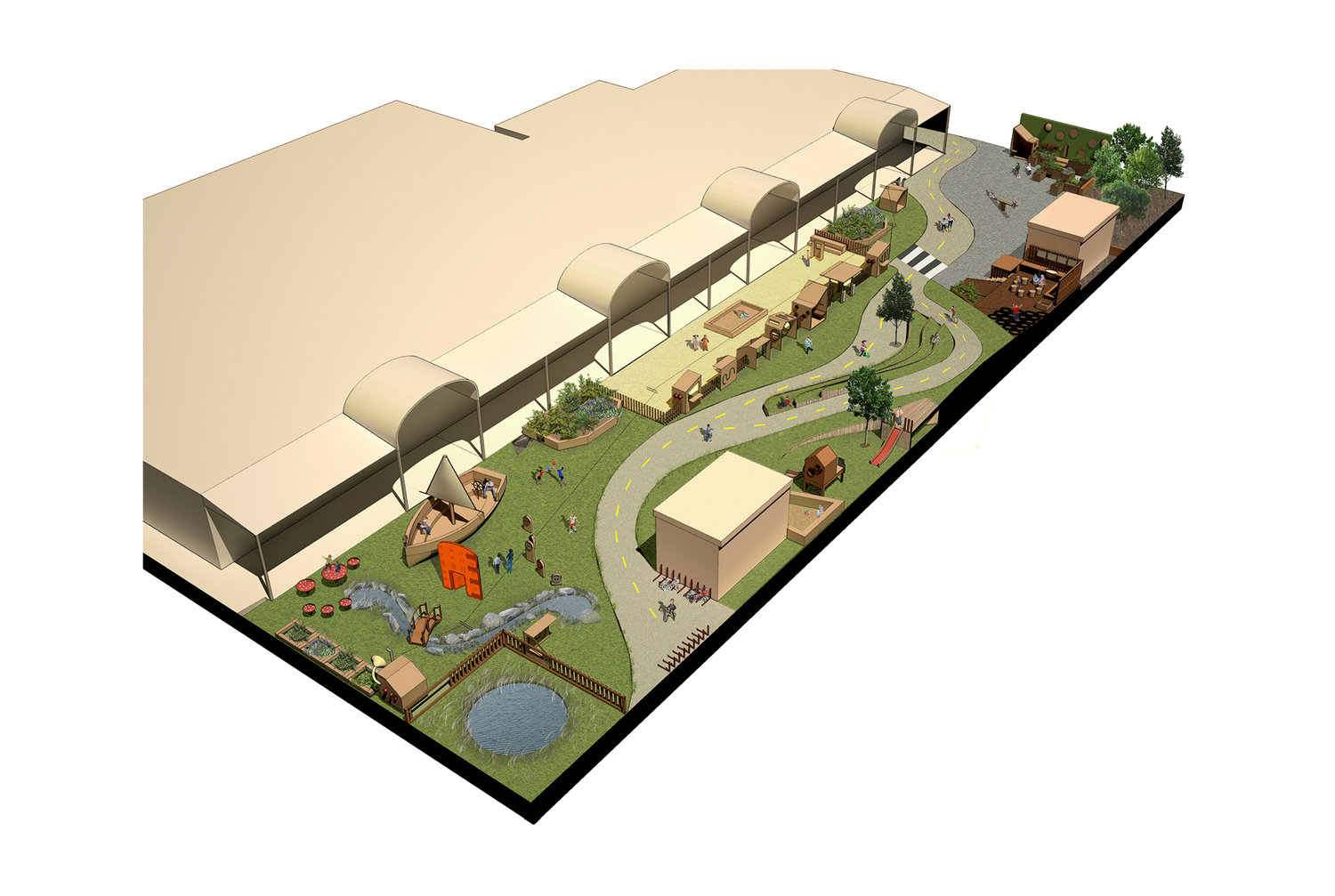
Proposal 3: Magic.
> Magic proposes a landscape that provides a space for unstructured play to give the children creative freedom, where there is no right answer. This proposal was inspired by understanding the structure of a town and countryside - mimicking spaces of exploration. The spaces balance risk and reward by setting up situations for the children to allow them to develop social skills such as creative thinking, problem solving and decision making.
Flexible amphitheatre space provides an additional outside classroom or performance spaces, whilst the street set-up mimics an everyday environment in a playful way, creating spaces for interaction.
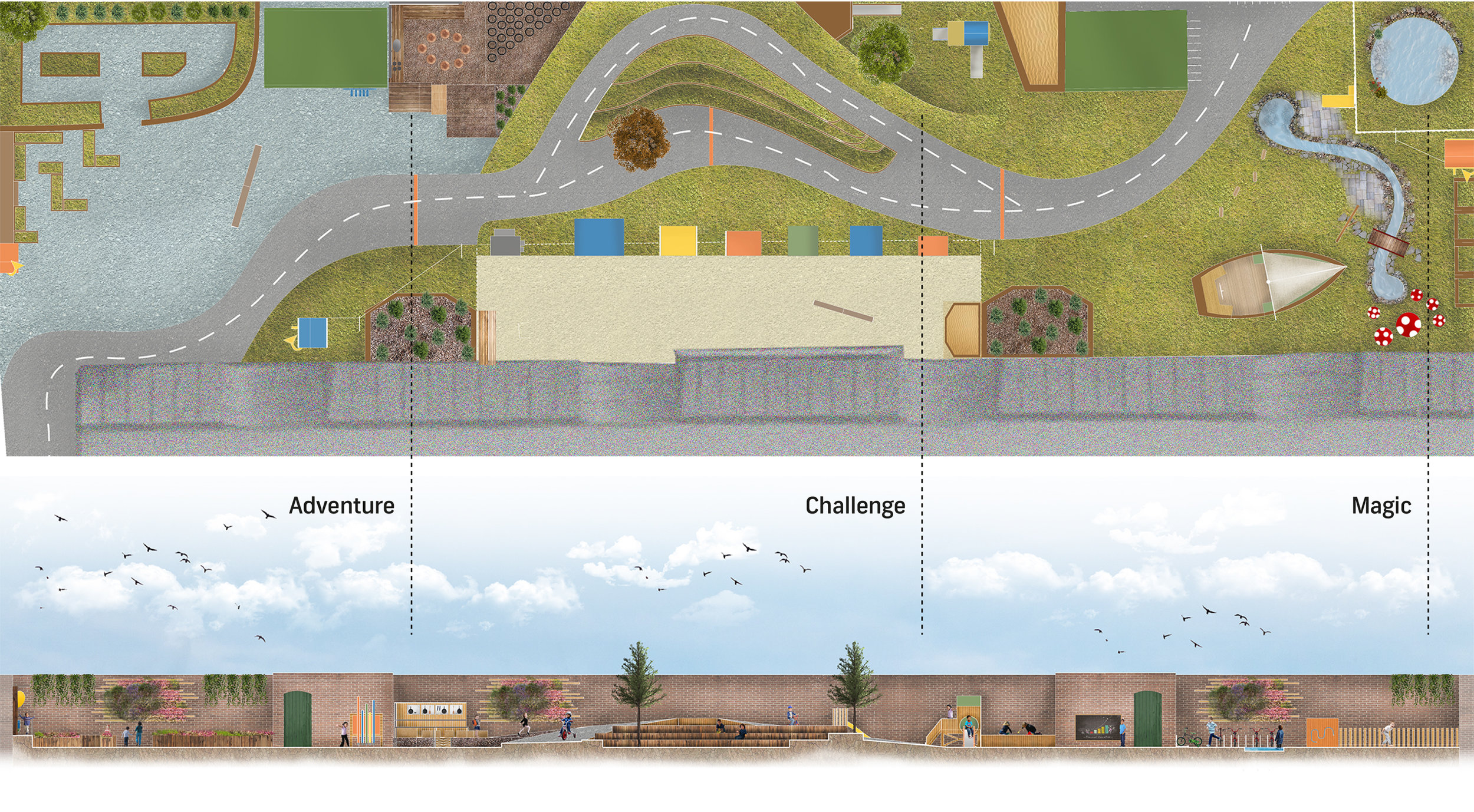
Proposal 3: Magic (plan).
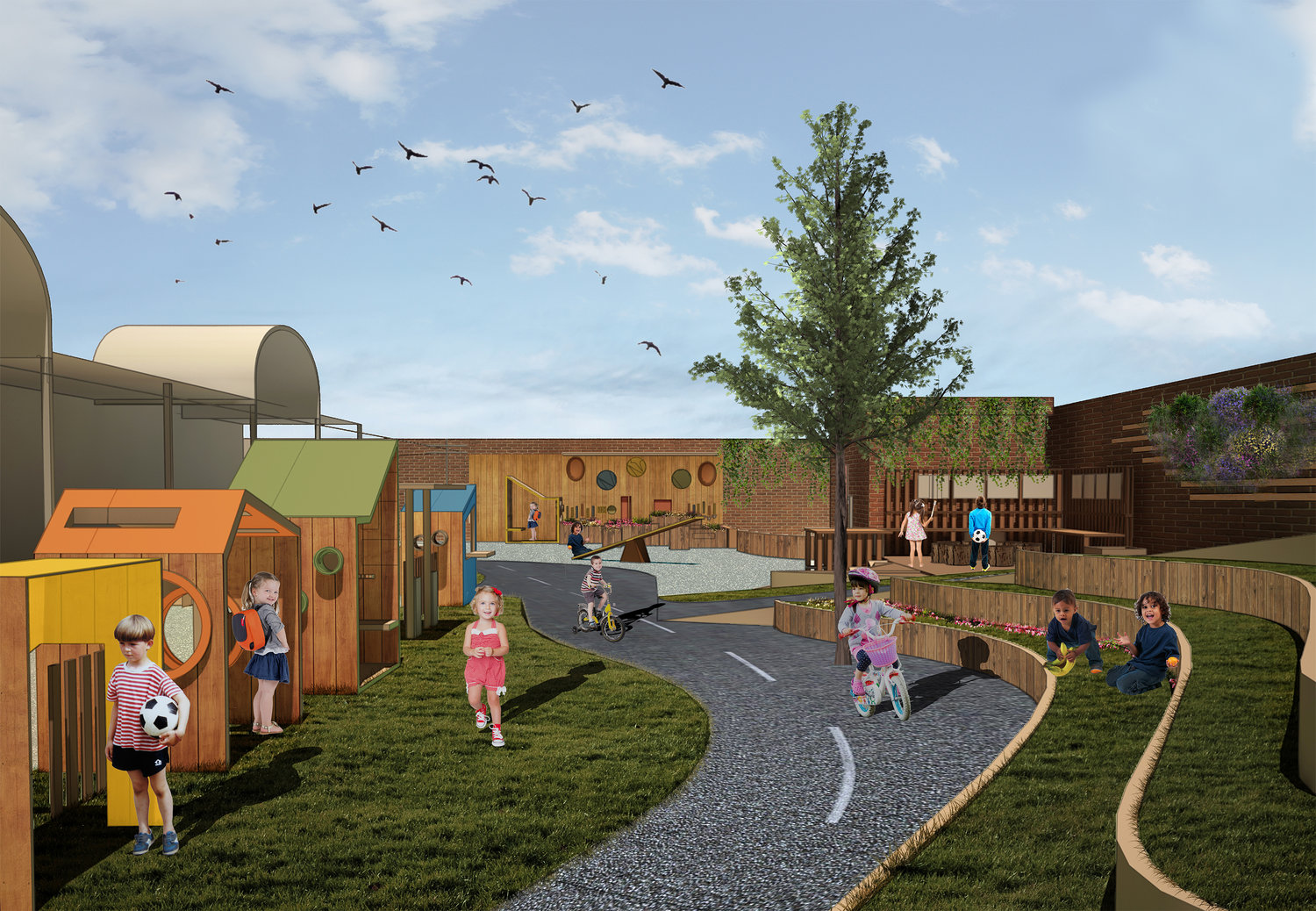
Proposal 3: Magic (track).
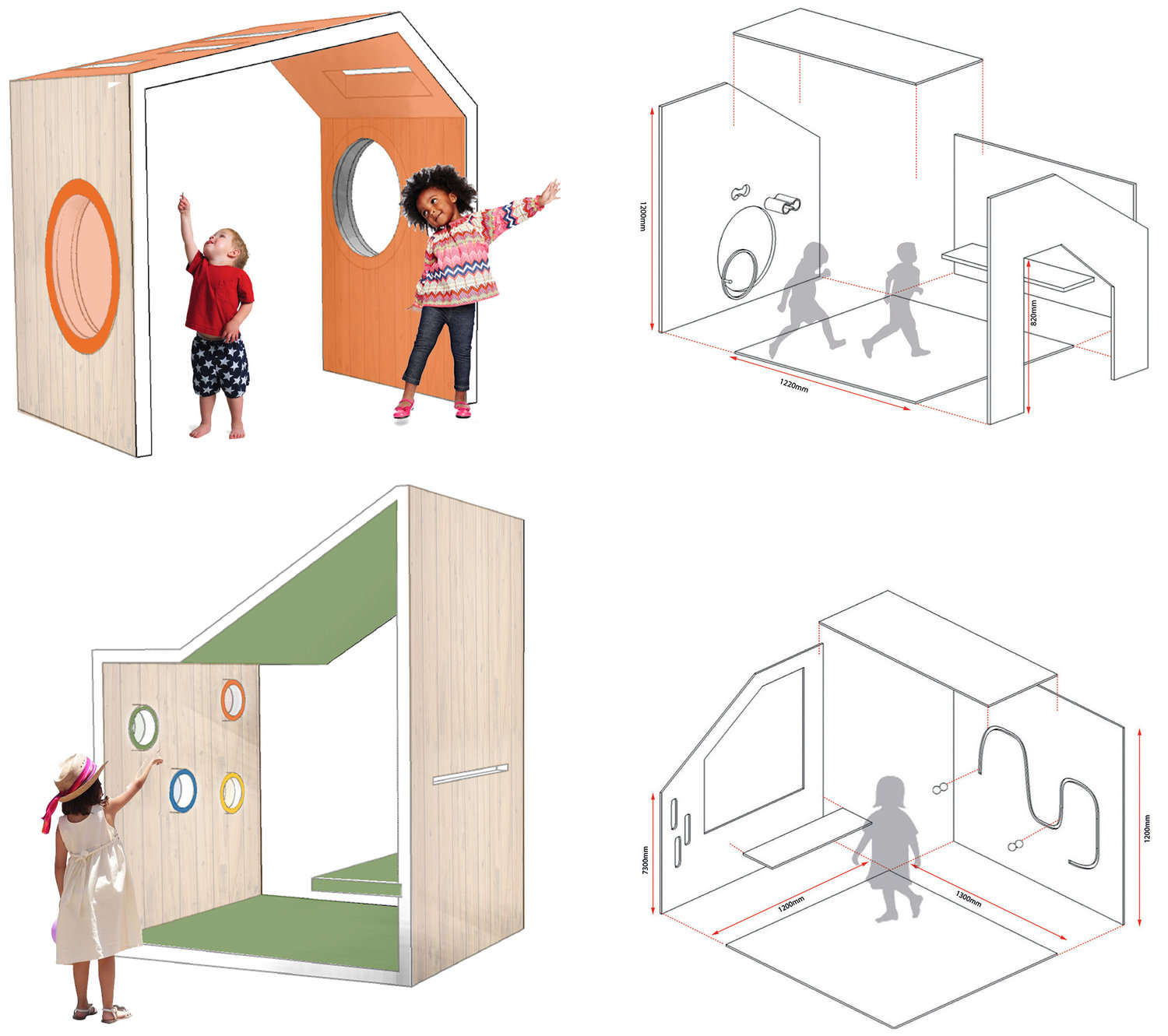
Proposal 3: Magic (shops).
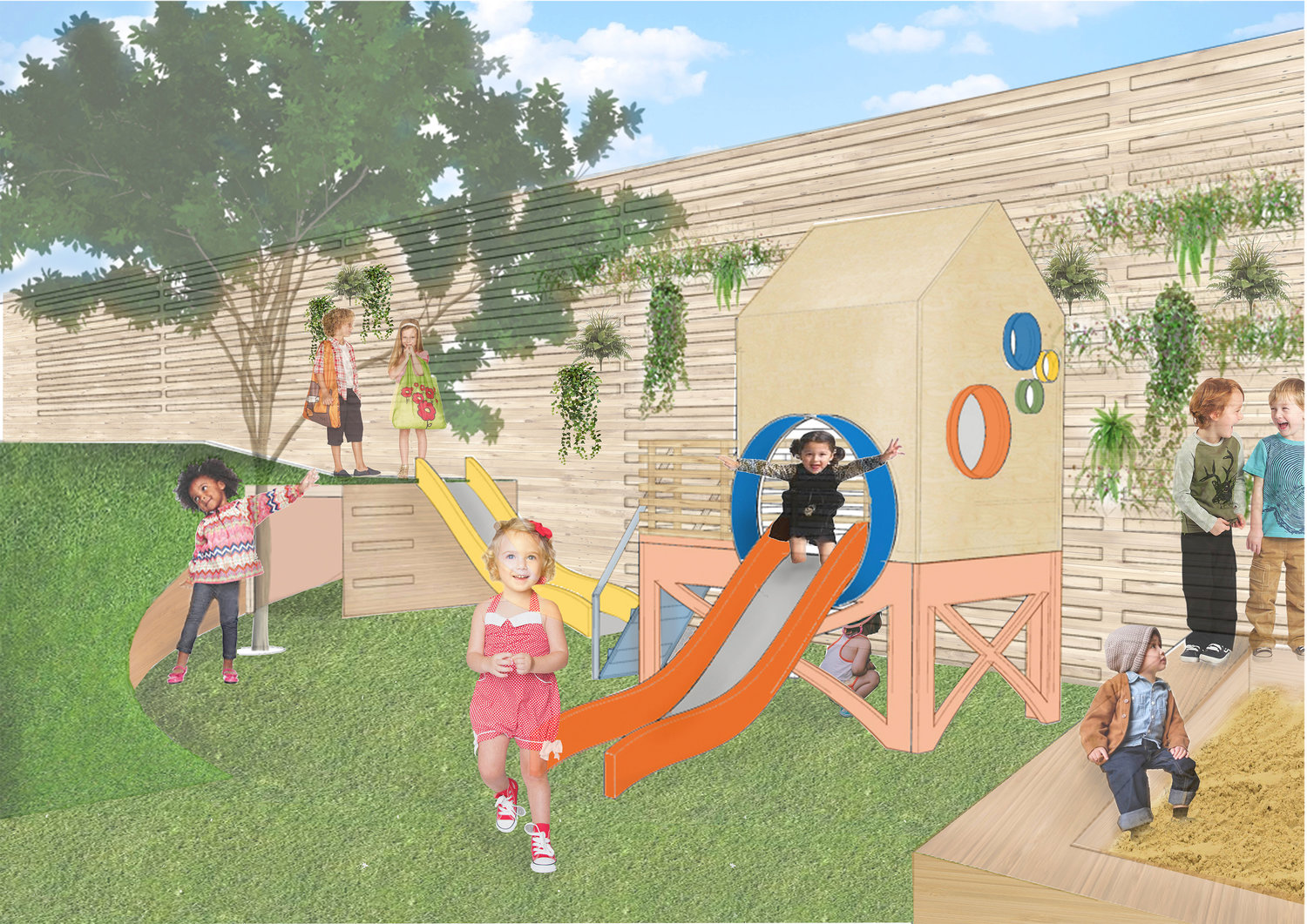
Proposal 3: Magic (garden).
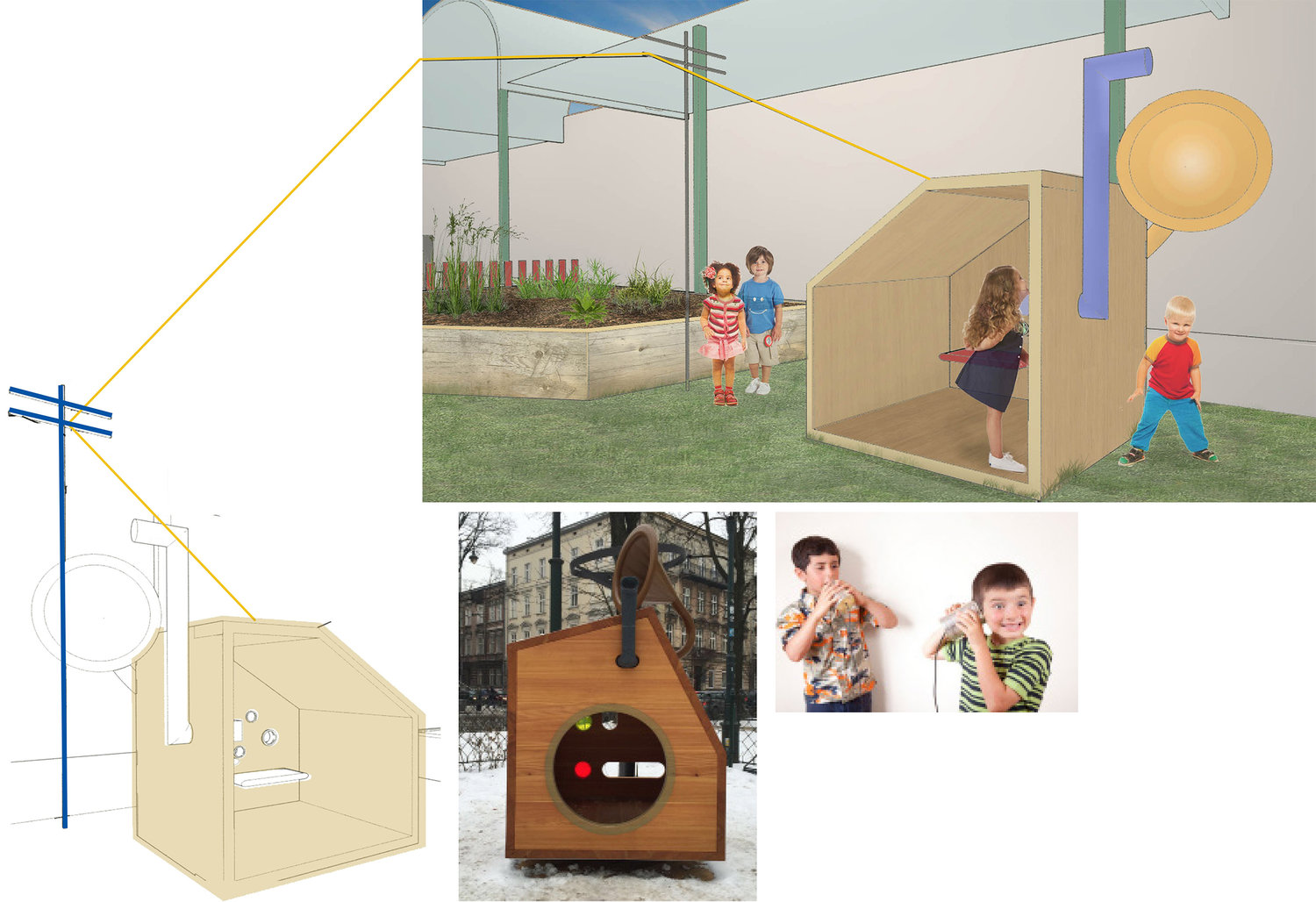
Proposal 3: Magic (communication).
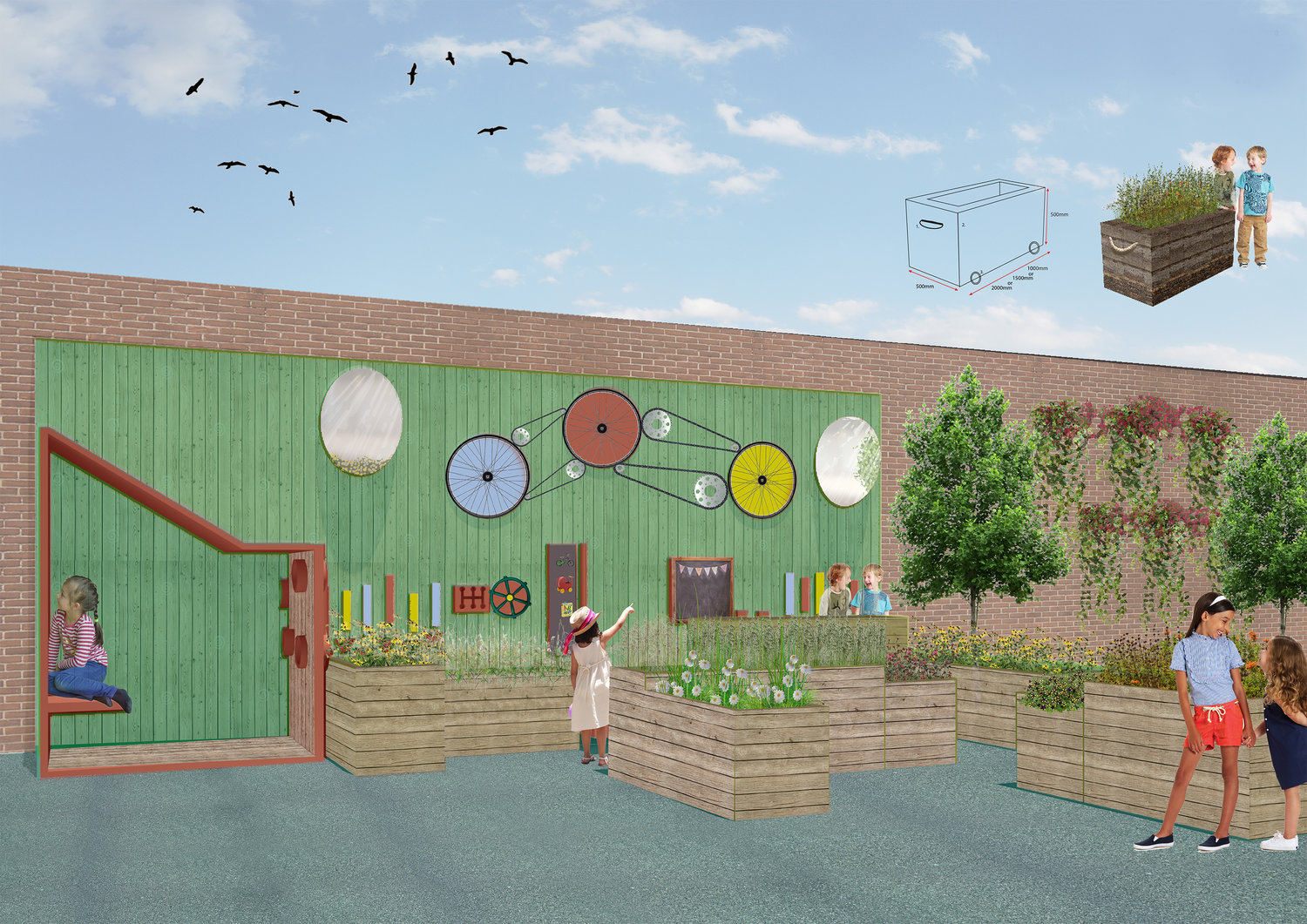
Proposal 3: Magic (workshop).
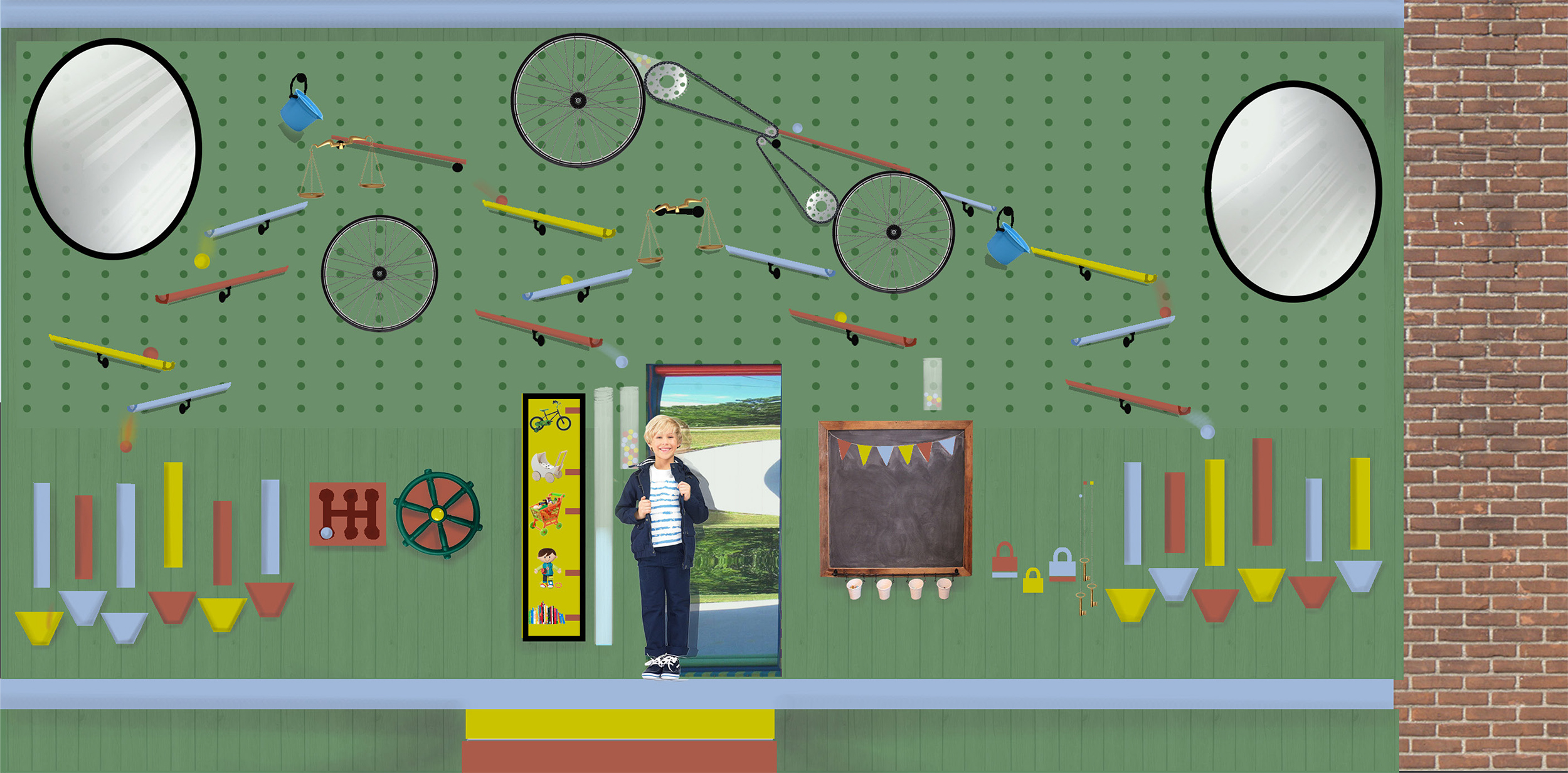
Proposal 3: Magic.

Proposal 3: Magic (drama).
Organisation + [Credits]
Ravensbourne University London, [©Idrees Rasouli]
Role + [Team Size]
Principal Investigator, [14]
Date + [Duration of Involvement]
2017, [3 months]
Partner + [Project Location]
Robert Owen Nursery School, [London, UK]
Status + [Project Type]
Research, [Design-led Solutions]
Brief + [Challenge]
Landscape for Children to Learn by Doing, [Design for Learning Enhancement]
Collaborators [Research & Design]
Project Collaborators Robert Owen Nursery School and Children’s Centre (Ruth Mercer, Sarah Davies, Beverley Woodward); Ecotopia (Abdul Kayum, Jahidul Miah, Ceyda Tezbasar, Marina Rossello-Knabe); Plenty Progress (Mini Coker, Priscilla Mensah); Magic (Billie Miller, Finlay Johnson, Leah Ward, Jed Maiden, Anika Hussain)
